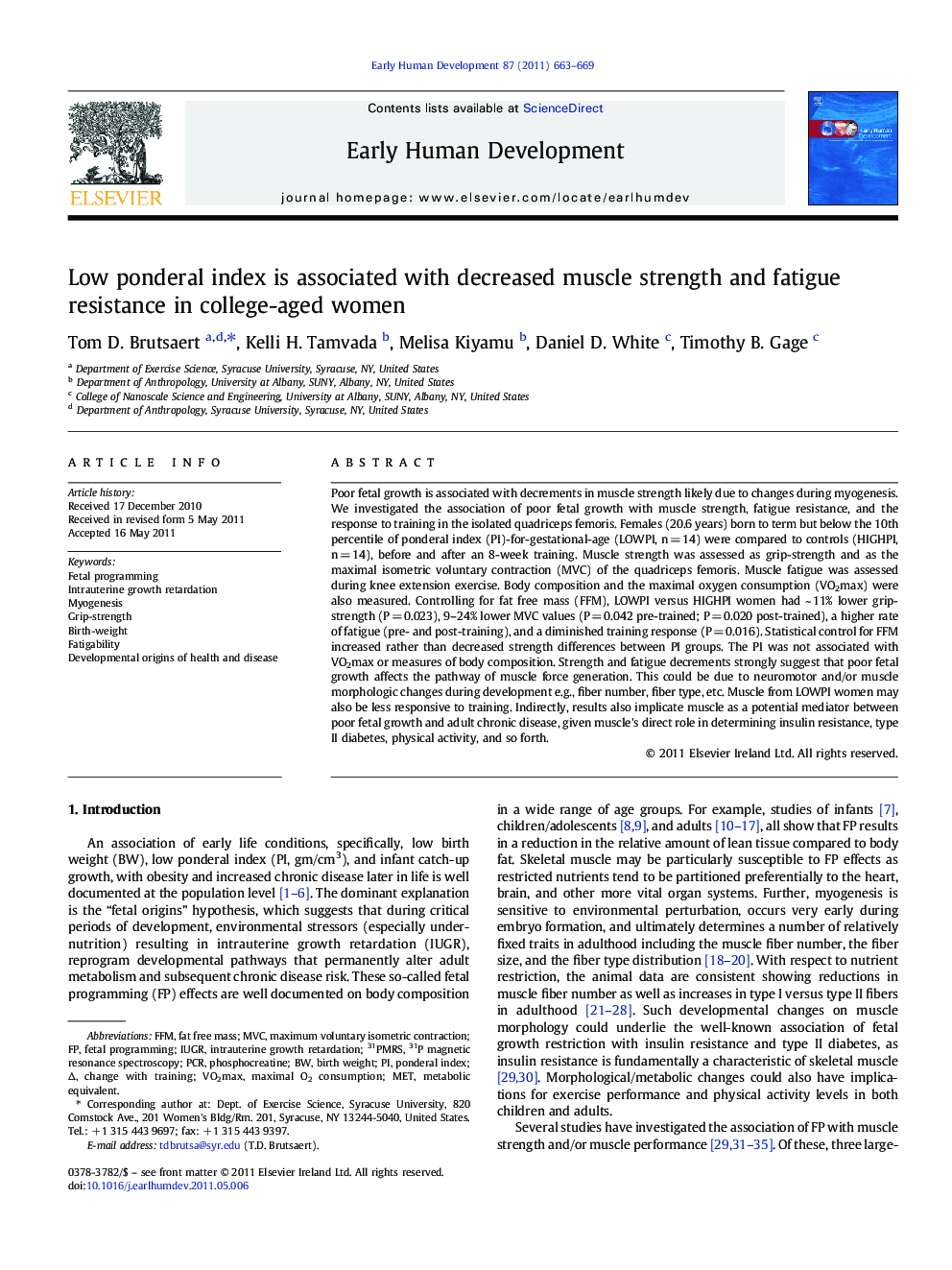| Article ID | Journal | Published Year | Pages | File Type |
|---|---|---|---|---|
| 3917397 | Early Human Development | 2011 | 7 Pages |
Poor fetal growth is associated with decrements in muscle strength likely due to changes during myogenesis. We investigated the association of poor fetal growth with muscle strength, fatigue resistance, and the response to training in the isolated quadriceps femoris. Females (20.6 years) born to term but below the 10th percentile of ponderal index (PI)-for-gestational-age (LOWPI, n = 14) were compared to controls (HIGHPI, n = 14), before and after an 8-week training. Muscle strength was assessed as grip-strength and as the maximal isometric voluntary contraction (MVC) of the quadriceps femoris. Muscle fatigue was assessed during knee extension exercise. Body composition and the maximal oxygen consumption (VO2max) were also measured. Controlling for fat free mass (FFM), LOWPI versus HIGHPI women had ~ 11% lower grip-strength (P = 0.023), 9–24% lower MVC values (P = 0.042 pre-trained; P = 0.020 post-trained), a higher rate of fatigue (pre- and post-training), and a diminished training response (P = 0.016). Statistical control for FFM increased rather than decreased strength differences between PI groups. The PI was not associated with VO2max or measures of body composition. Strength and fatigue decrements strongly suggest that poor fetal growth affects the pathway of muscle force generation. This could be due to neuromotor and/or muscle morphologic changes during development e.g., fiber number, fiber type, etc. Muscle from LOWPI women may also be less responsive to training. Indirectly, results also implicate muscle as a potential mediator between poor fetal growth and adult chronic disease, given muscle's direct role in determining insulin resistance, type II diabetes, physical activity, and so forth.
